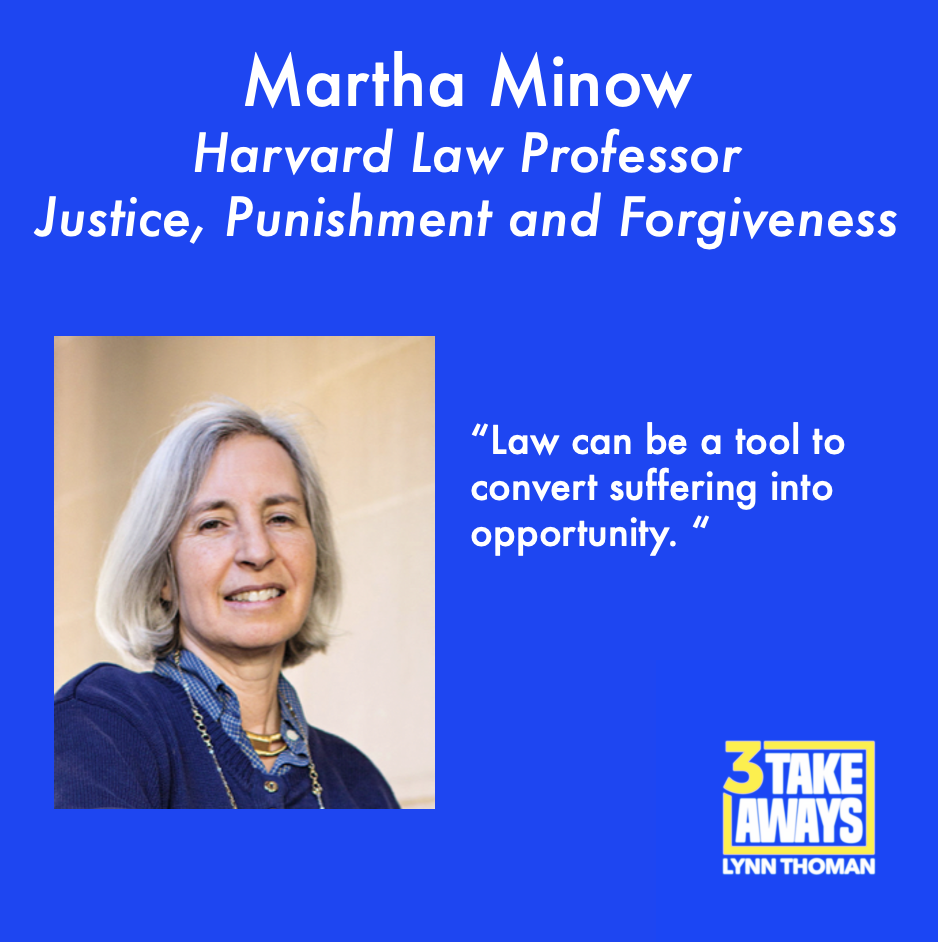
Justice, Punishment and Forgiveness: When Should Law Forgive?
Former Harvard Law School Dean Martha Minow argues for greater forgiveness by the law and the justice system. Using examples from around the world, she shares how forgiveness can lower crime and reduce incarceration.
She warns about the highly punitive American justice system which forgives bankruptcy but not misdemeanors.
The very same kind of crime in the United States and in Sweden or in Finland, will produce in the United States perhaps a 20 years' sentence, and in one of those Scandinavian countries, maybe 5 to 10 years. The US is far more punitive, and Martha argues there is no evidence that that produces lower rates of crime. In fact, the US has higher rates of crime.
What‘s the right balance between forgiveness and punishment? It's not an easy question. A justice system needs to hold people accountable for their crimes and be fair, treating people the same, but when should the law forgive and allow for fresh beginnings? Martha Minow is the perfect person to ask. She’s written a book titled When Should Law Forgive?
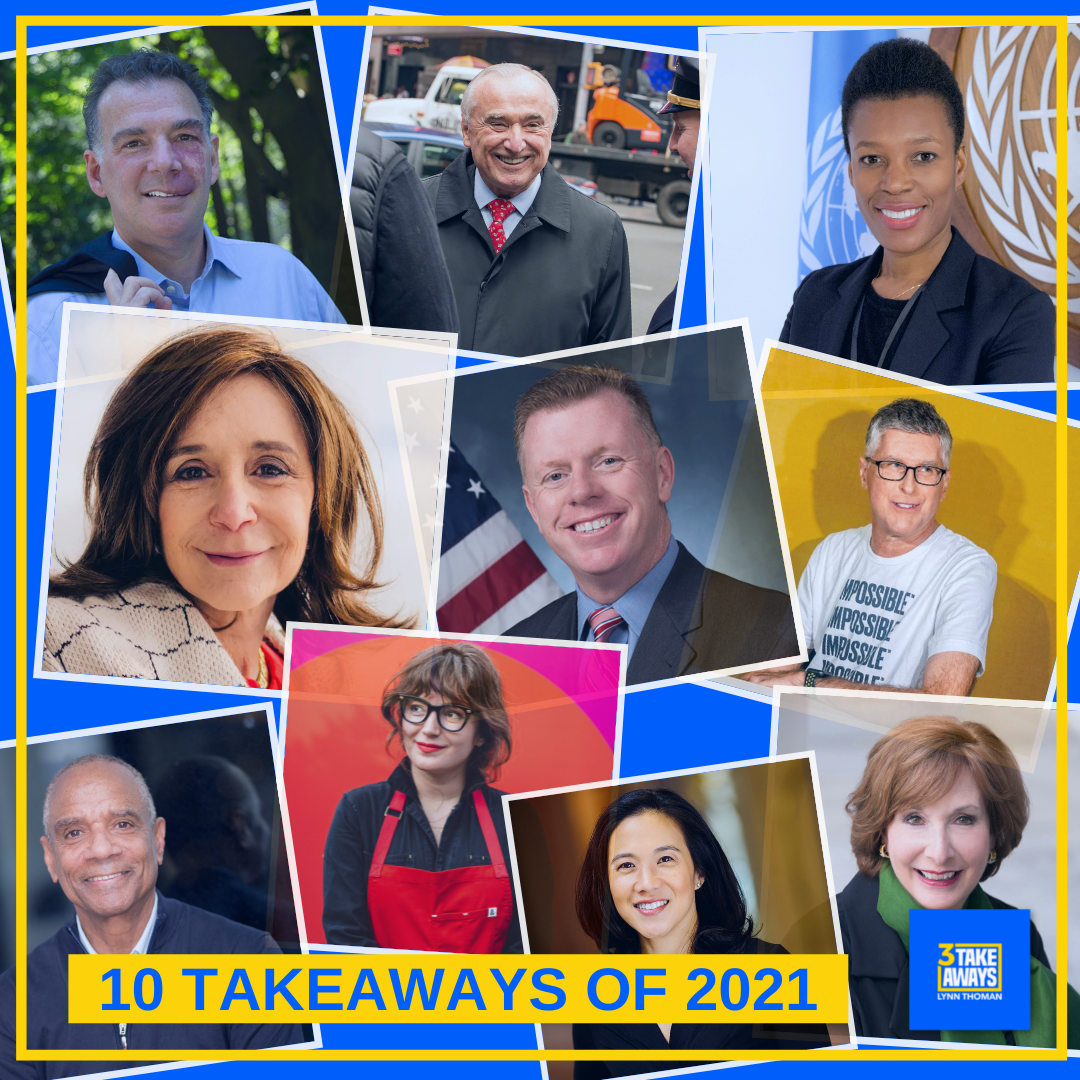
Always Be Learning: The Top 10 Takeaways of 2021 From Our Guests
This week on the podcast we are highlighting the Top 10 Takeaways of 2021. With guests ranging from CEOs and founders, to best-selling authors and even the Director of the U.S. Secret Service. These individuals left us feeling motivated and inspired!
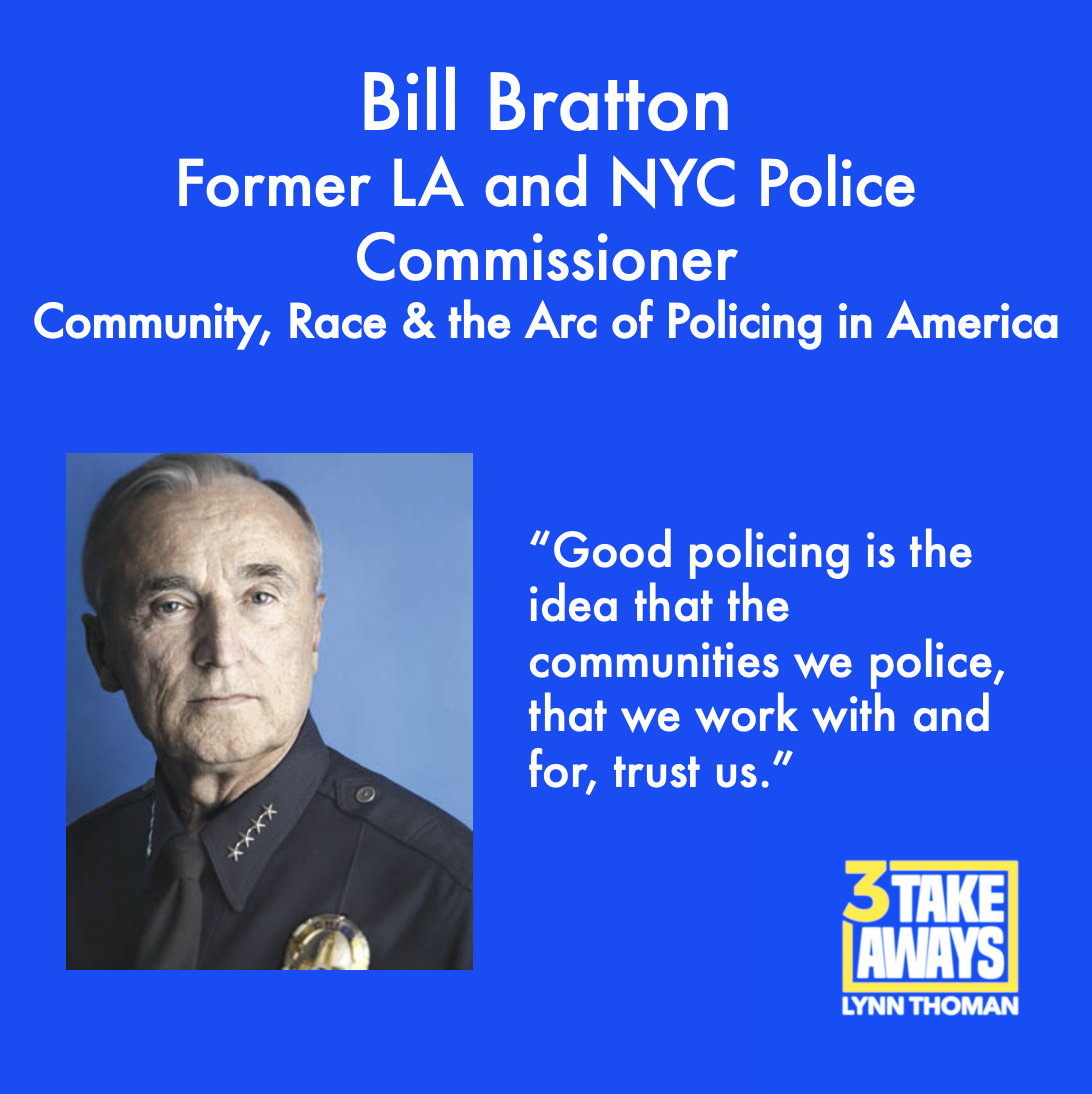
Community, Race, and the Arc of Policing in America: Former NYC and LA Police Commissioner Bill Bratton
Former New York City Police Commissioner Bill Bratton shares what he thinks good policing looks like, reforms needed in the wake of George Floyd’s murder, the arc of policing and the reasons crime is up in many major cities. He talks about different approaches to policing including broken windows, rapid response and community policing as well as the crisis in relations between the Black community and the police. While he and his team slashed crime rates and created the revolutionary data-driven program CompStat, his career has not been without controversy. He is the only person to have led the police departments of the United States' two largest cities – New York and Los Angeles.
Bratton is currently the chairman of the U.S. Homeland Security Advisory Council and author of The Profession.
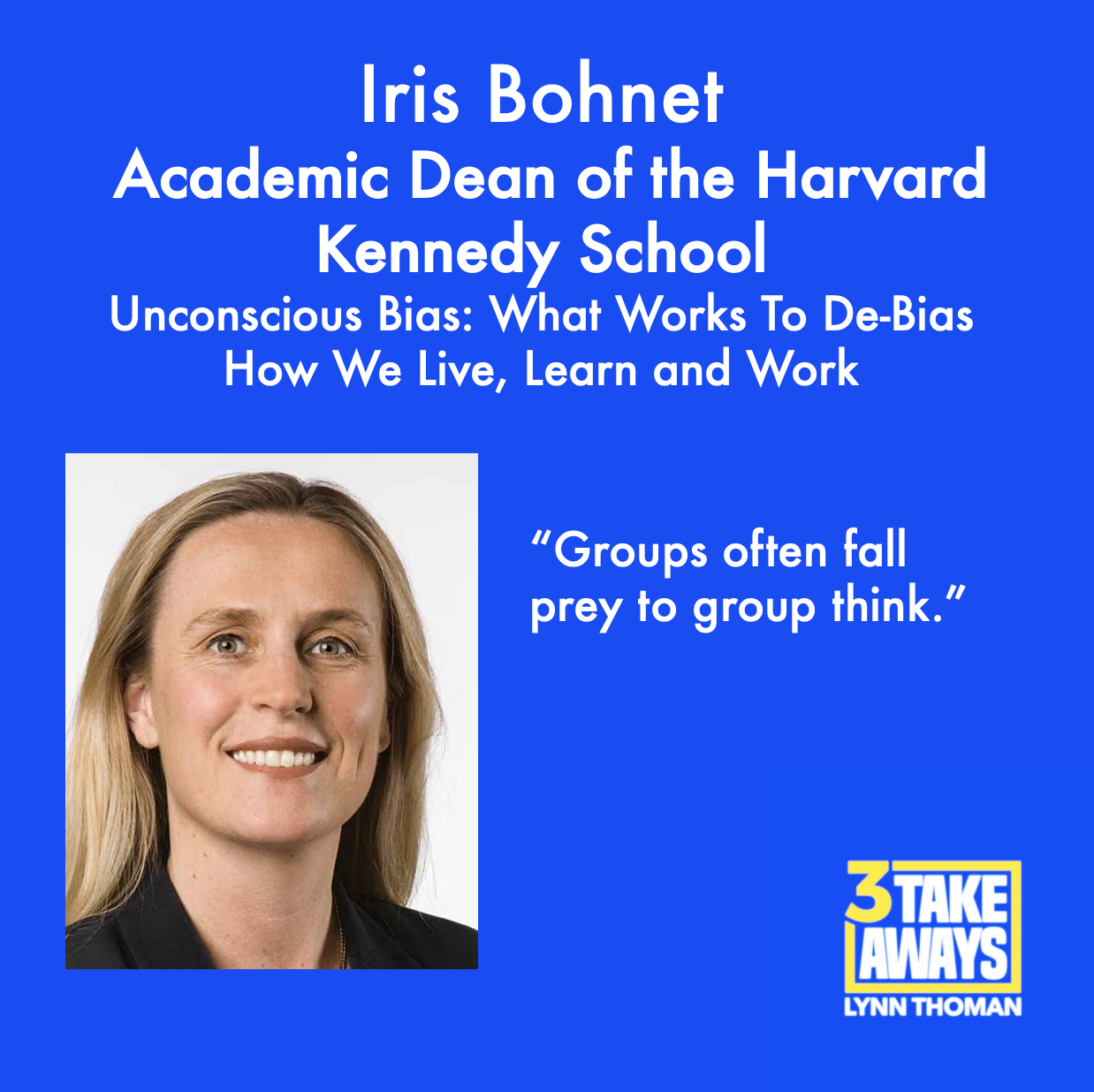
Unconscious Bias: What Works To De-Bias How We Live, Learn and Work with Harvard Kennedy School's Former Academic Dean Iris Bohnet
Iris Bohnet, the Academic Dean of the Kennedy School and co-Director of the Women and Public Policy Program, shares how simple, evidence-based changes can reduce and neutralize the biased behaviors in classrooms, police departments, and boardrooms; and in hiring and promotion. She is a behavioral economist, combining insights from economics and psychology to improve decision-making in organizations and society.
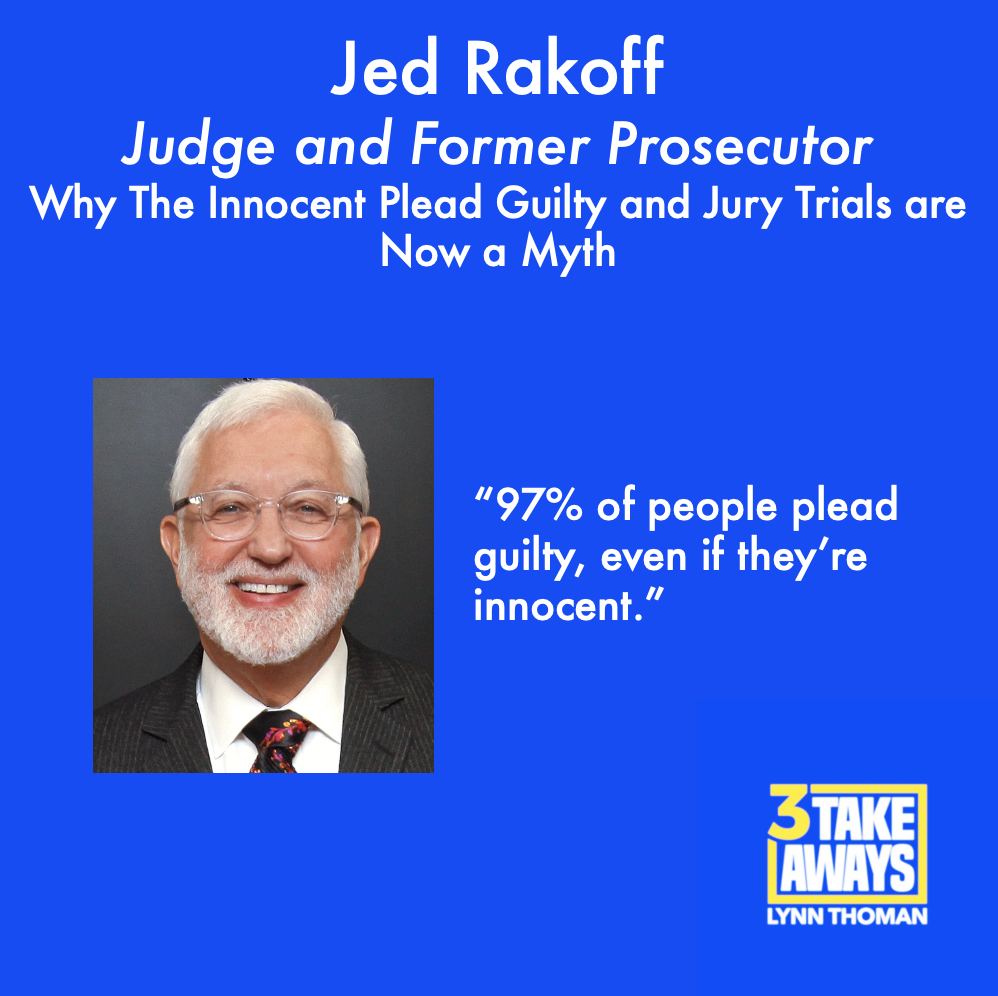
Why The Innocent Plead Guilty and Jury Trials Are Now a Myth with Judge and Former Prosecutor Jed Rakoff
97% of people plead guilty, they plea bargain, even if they’re innocent. No one can take the risk of going to trial, even innocent people, because if they're convicted they'll face huge amounts of time in prison. The possibility of being acquitted by a jury is almost gone. Find out why the innocent plead guilty and why the innocent no longer have trials from Judge Jed Rakoff, who’s seen it from all sides as a judge, former prosecutor and former criminal defense attorney.
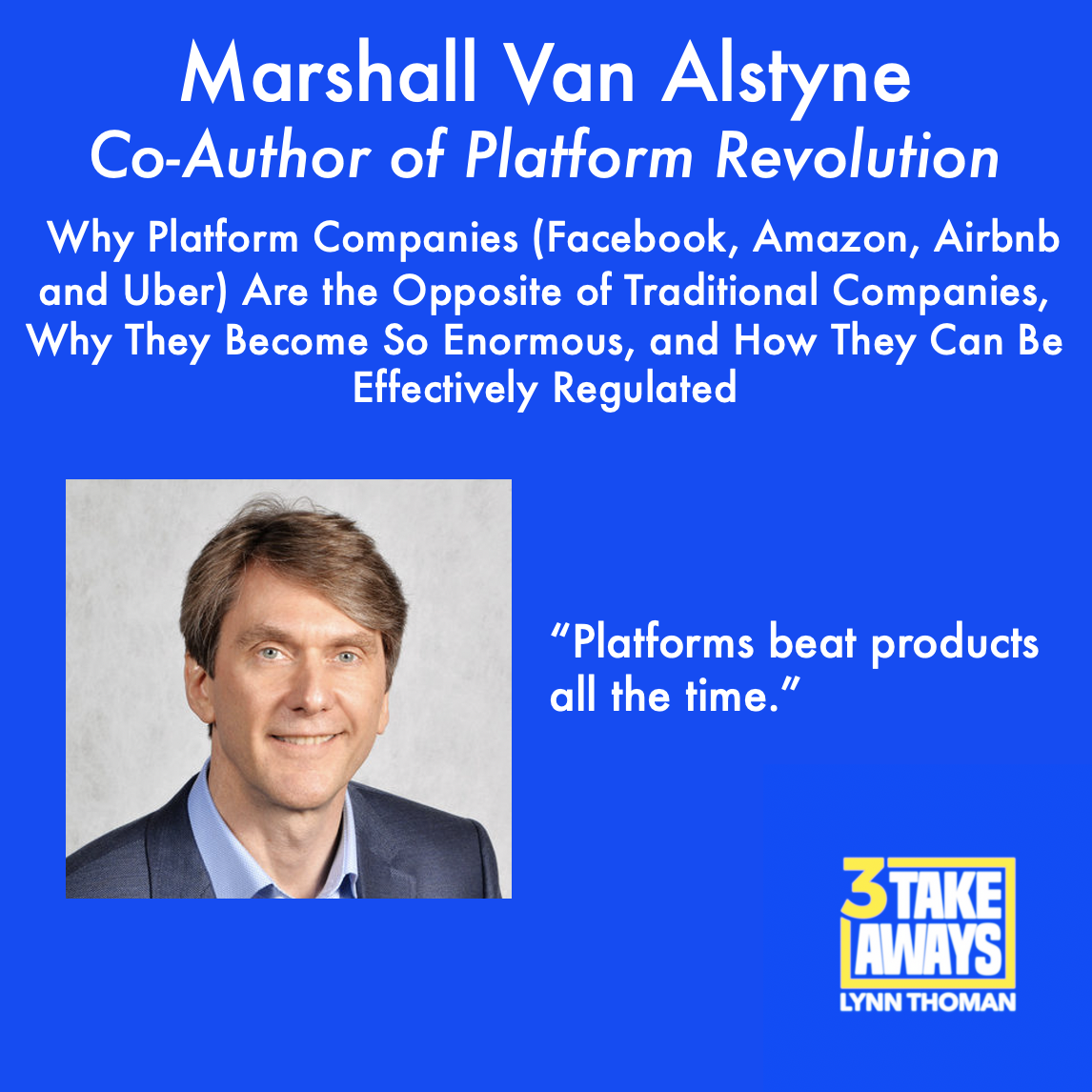
Marshall Van Alstyne: Why Platform Companies (Facebook, Amazon, Airbnb and Uber) Are the Opposite of Traditional Companies, Why They Become So Enormous, and How They Can Be Regulated
Find out why platform companies dominate traditional businesses and why 7 of the 10 largest companies in the world are platform companies. Learn how they outcompete traditional companies while employing just a tiny fraction of the number of people, how they are completely different from companies of the past, and why platforms beat products all the time.
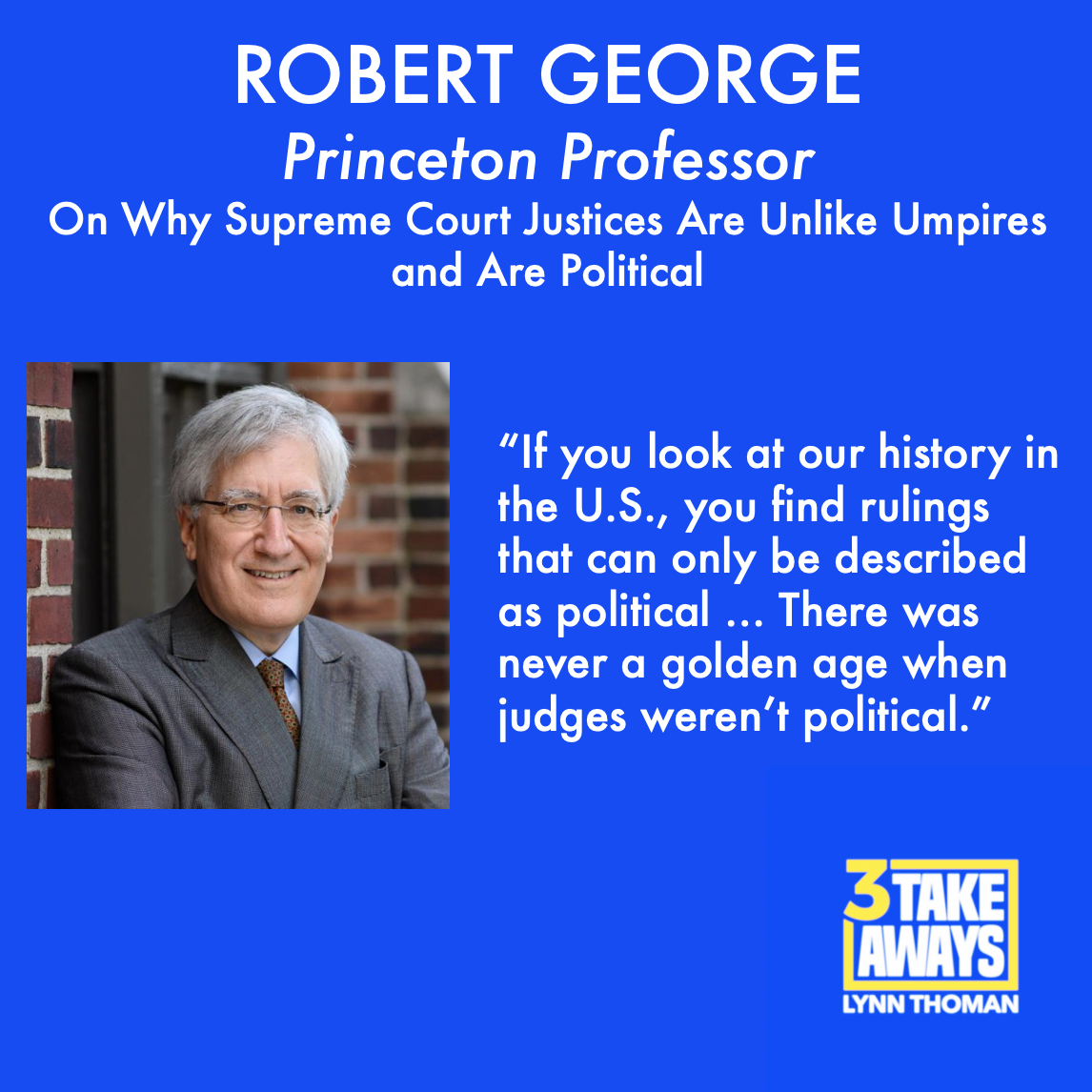
Princeton Professor, Robert George: On Why Supreme Court Justices Are Unlike Umpires and Are Political
Find out how Democratic and Republican judges’ decisions differ and how judges’ decisions can be predicted based on whether they are Democrats or Republicans.
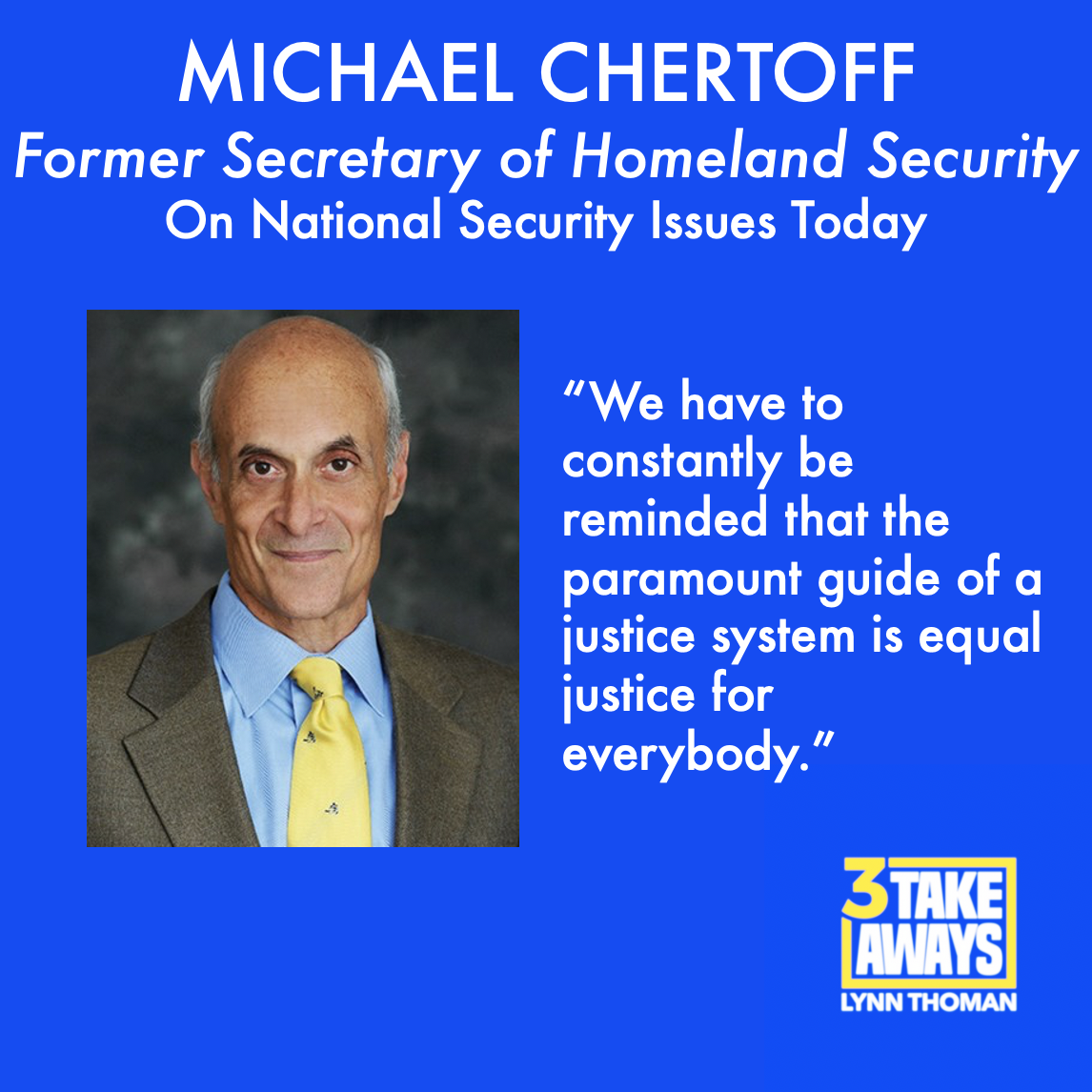
Former Secretary of Homeland Security, Michael Chertoff: On National Security Issues Today
Michael Chertoff, a former Secretary of Homeland Security, federal prosector, judge and Assistant U.S. Attorney General, provides a unique perspective on national security issues today, including using federal troops in cities, criminal justice, immigration, terrorism and health threats.
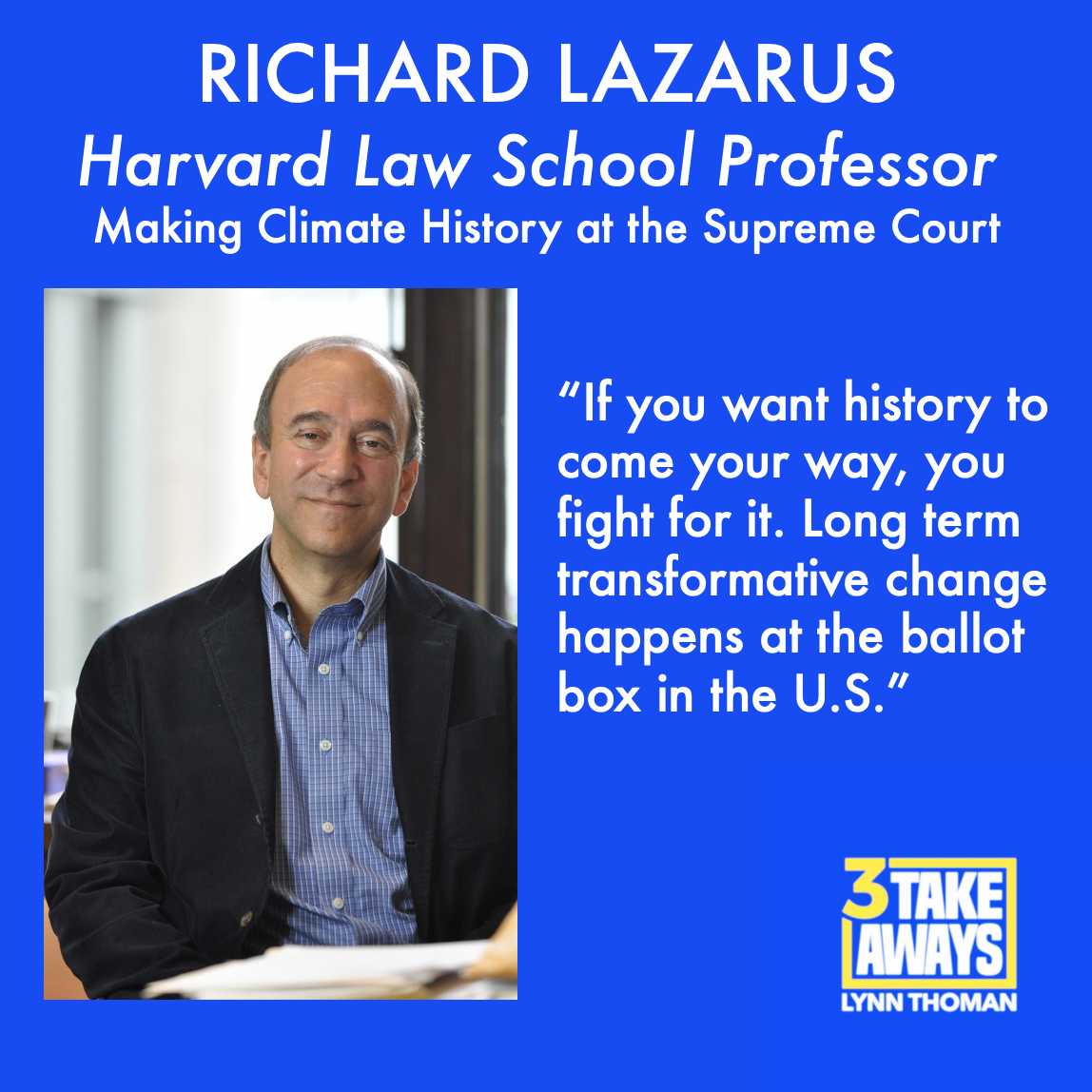
Harvard Law Professor, Richard Lazarus: Making Climate History at the Supreme Court
Harvard Law School professor Richard Lazarus tells the gripping inside story of the most important environmental law case ever decided by the US Supreme Court, what it took to win it and its sweeping impact. Lazarus offers a poignant reminder of the difference one person can make. See how far we’ve come―how far we still must go – and how one person made a difference and how you can make a difference now.
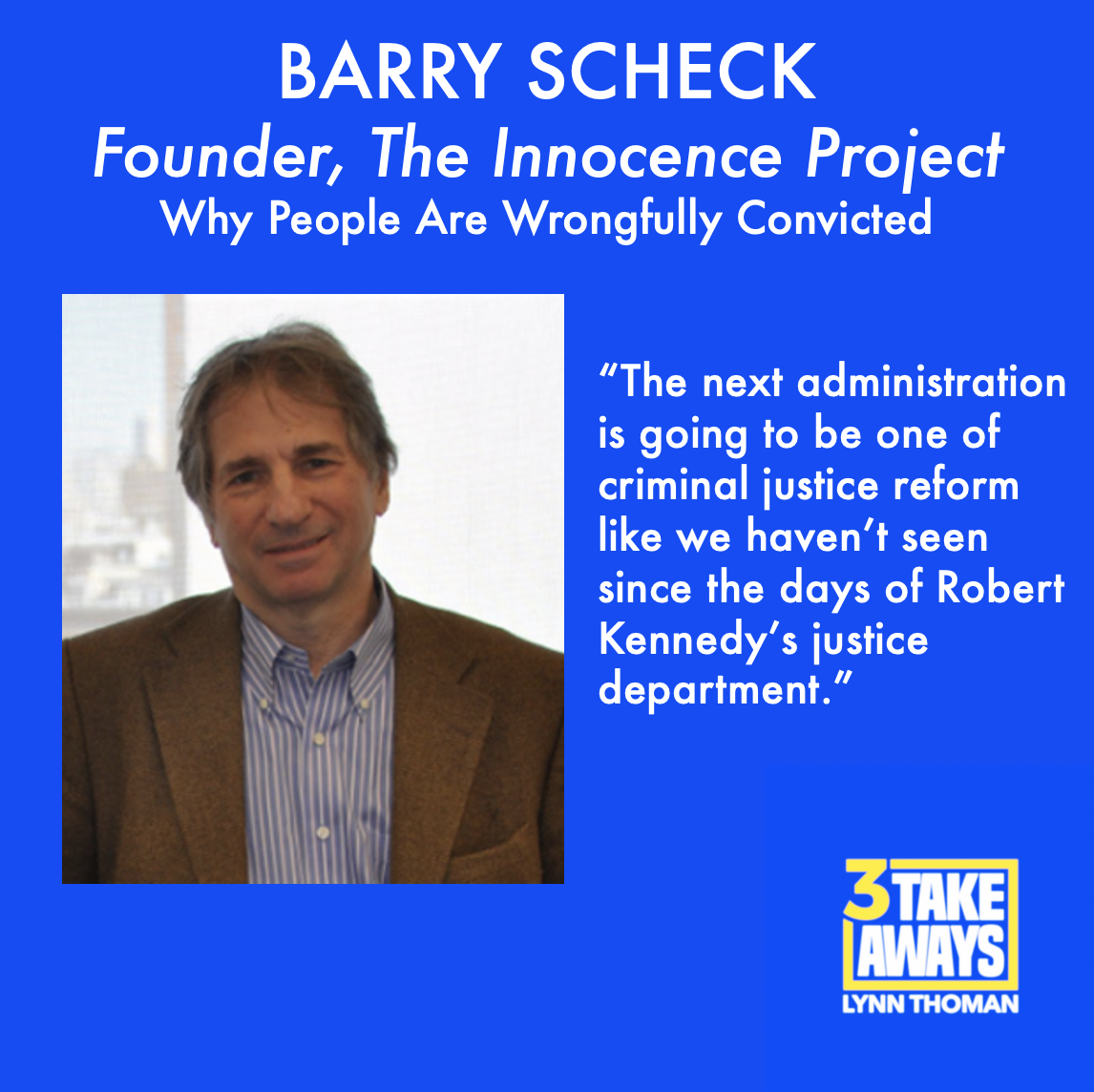
Founder of the Innocence Project, Barry Scheck: Why People Are Wrongfully Convicted
This week on 3 Takeaways, founder of the Innocence Project Barry Scheck, answers all questions related to wrongful convictions. Barry Scheck has freed hundreds of wrongfully convicted people from jail, many of whom spent decades in jail for crimes they didn’t commit.
